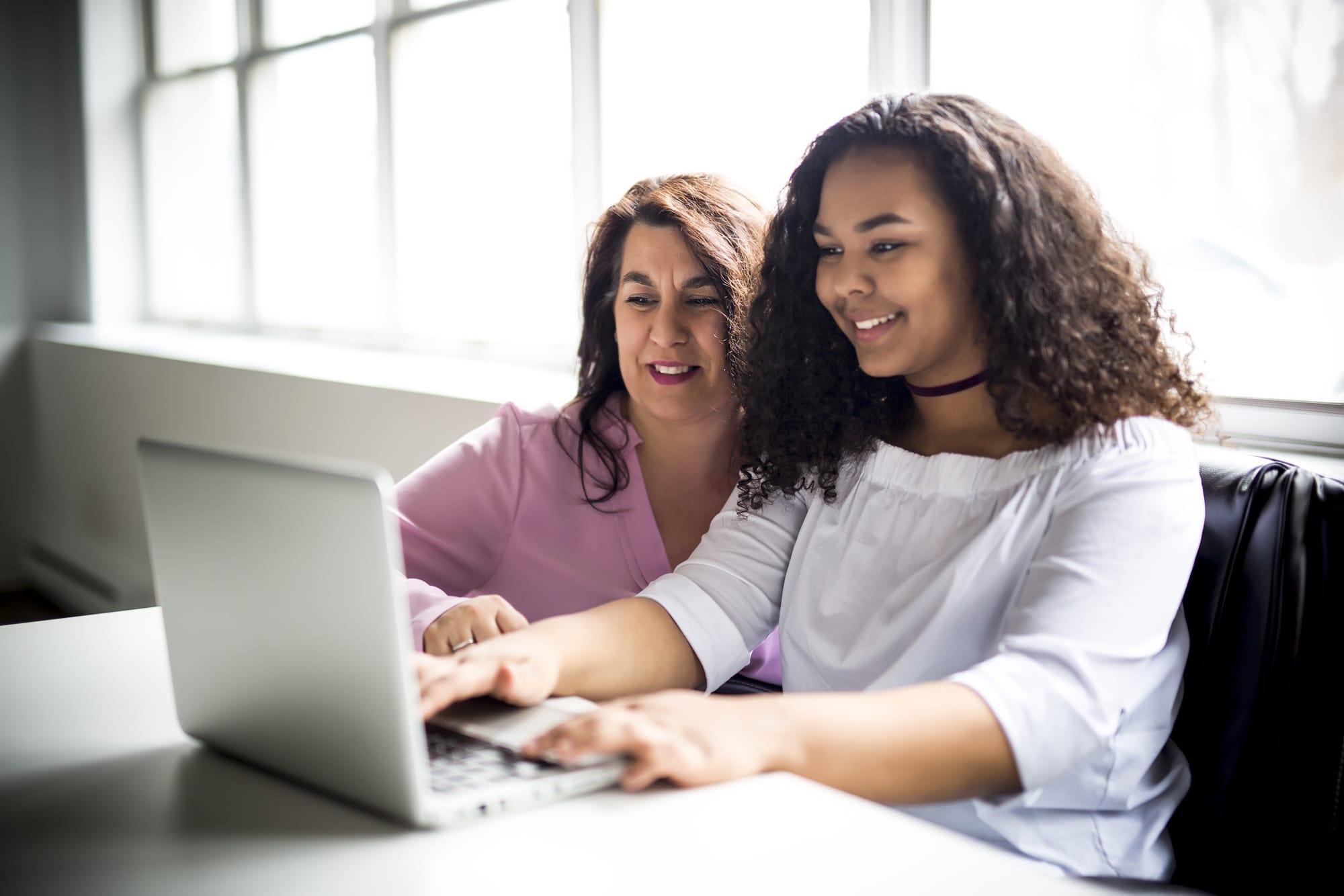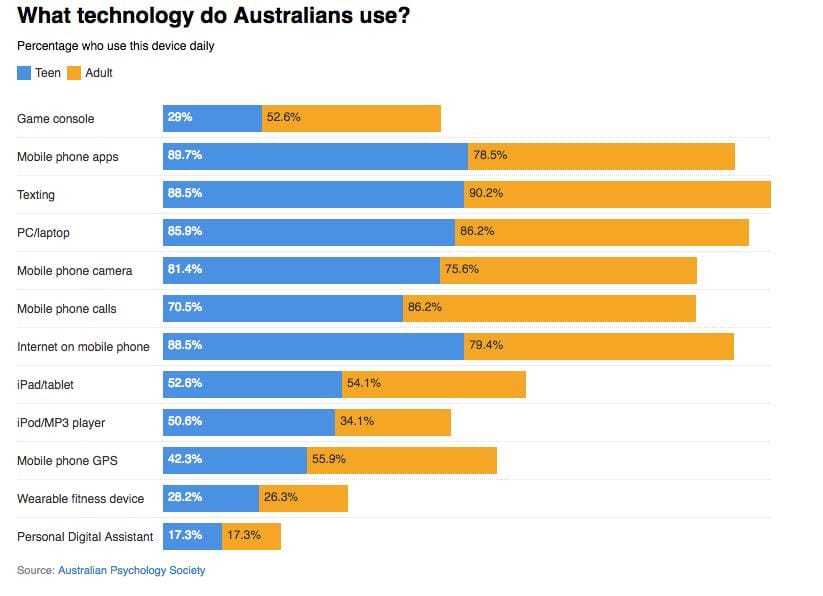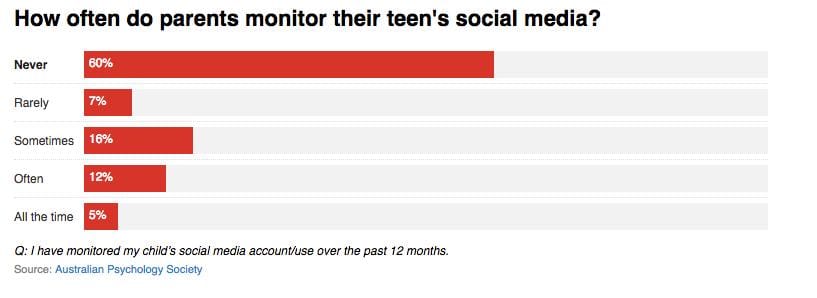
Knowing how to navigate the online social networking world is crucial for parents and teens. Being educated and talking about online experiences can help reduce any negative impacts on youth mental health and wellbeing.
The Australian Psychology Society (APS) recently released a national survey looking at the impact of technology and social media on the wellbeing of Australians.
About 1000 adults over the age of 18 and 150 young people aged 14-17 years took part. The survey found more than three in four young people (78.8 per cent) and more than half of all adults (54 per cent) were highly involved with their mobile phones. Young people are reportedly using social media for an average of 3.3 hours each day, on five or more days of the week.

The vast majority of adults and teenagers reported their screens and social media accounts were a positive part of their lives. Many use social media channels to connect with family, friends and to entertain themselves.
Too much social media use can affect self-esteem
Despite social media playing a positive role for most, the survey found the high use of social media and technology can have a negative impact on youth self-esteem. Two in three young people feel pressure to look good and nearly a third of youth have been bullied online. Nearly half (42 per cent) of frequent users look at social media in bed before sleeping.
The survey also found 15 per cent of teenagers reported being approached by strangers on a daily basis through their online world.
About 60 per cent of parents never monitor their teen’s social media account and are wrestling their own issues about how much is too much screen time. Most are unsure of how to provide good guidance of appropriate social media use with their teens.

Engage with your teen’s online world
Parents and teens need to be informed about engaging with the online world. Parents can ask their teen to show them how they use social media and what it is. Try to navigate the social world together, rather than acting as a supervisor. Ask your teen to help you understand how they use the internet so you can make good decisions about social media use together.
Read more: The way your children watch YouTube is not that surprising – but it is a concern. Here are some tips
Here are a few tips to connect with your teen’s online world:
- Together with your teen, visit their social media channels. Take a look at what your teen is posting online. Check out their favourites and which YouTube channels they're subscribed to. Favourites and subscriptions can give you clues about what they’re watching on the site.
- Ask your teen to create playlists of their favourite videos, while you create your own. Then, sit and watch them together. You can see what they’re watching, and it gives them an opportunity to share what they enjoy online with you.
- Make using the internet together a game. For example, you can guess what kinds of videos are popular in a particular place and use the “advanced search” function to see videos only in that location.
Difficult conversations about social media
An important step in navigating the risks of social networking is to have ongoing conversations about social media use with your teens. If you’re already engaged in your teen’s online world, it will be easier to have difficult conversations about some of the risks and ways to manage them.
Many people believe internet browsing is anonymous. Educate your teen about their digital reputation. Whenever your teen visits a website, shares content, posts something on a blog or uploads information, they’re adding to their digital footprint.
This information can be gathered under their real name and possibly accessed by future employers or marketing departments. This can happen without you or your teen knowing. Protecting your personal information and knowing it’s not truly anonymous are important conversations to have together.
Cyberbullying can occur if online users try to intimidate, exclude or humiliate others online through abusive texts or emails, hurtful messages, images or videos, or online gossip and chat. Let your teen know to try not to retaliate or respond, and to speak to a trusted adult right away. Aim to block the bully and report the behaviour to the social media platform.
Read more: Blocking kids from social media won’t solve the problem of cyberbullying
Create a family media plan to help manage social media use, with options to create different guidelines for each teen. In the plan, promote healthy technology use habits with your teen. This includes not using technology too close to bed time.
Research shows using technology at night can have a negative impact on sleep quality. Try to not use technology for about 30 minutes to an hour before bedtime. Consider using devices in the living spaces in the house rather than in the bedroom when it’s time to go to sleep.
Here’s some more information on how to talk to your teens about their internet use, and thriving in an online age.
http://www.projectknow.com/cyberbullying-a-rising-problem-among-kids-and-teens

Christine Grove is an educational psychologist and lecturer at Monash University. She is a member of the Australian Psychological Society (MAPS).
Christine Grove was a senior lecturer at Monash University at the time of writing this article.





